CRCWSC to work on ‘once in a lifetime’ project to design new Indian city
Our National Engagement Manager, Jamie Ewert, made a ground-breaking visit to the Indian state of Andhra Pradesh in December, to officially sign a memorandum of understanding (MoU) to involve the CRCWSC in building a sophisticated new capital city.
The CRCWSC will help to incorporate Australia’s world leading water sensitivity practices into the new capital city, to be known as Amaravati. Mr Ewert described the project as a ‘once in a lifetime opportunity to design a city the right way from the outset, incorporating all the features we now understand to be crucial to liveability, resilience and sustainability’.
The MoU signed during Mr Ewert’s trip establishes the water sensitive cities partnership between the Andhra Pradesh Department of Municipal Administration and Urban Development, the Capital Region Development Authority, and the CRCWSC.
Under the deal, the CRCWSC will deliver
$1 million of technical assistance to assist the Andhra Pradesh Government (including its Amaravati project). We will work alongside UK firm Foster + Partners (which is responsible for the city’s architecture) and Singapore’s Centre for Liveable Cities (which is providing strategic advice on blue-green infrastructure).
About Andhra Pradesh and Amaravati
Andhra Pradesh is a newly created state resulting from the 2014 bifurcation of an existing state (also called Andhra Pradesh) into the two new states of Andhra Pradesh and Telangana.
Amaravati will be the new capital of Andhra Pradesh. Andhra Pradesh and Western Australia are sister states.
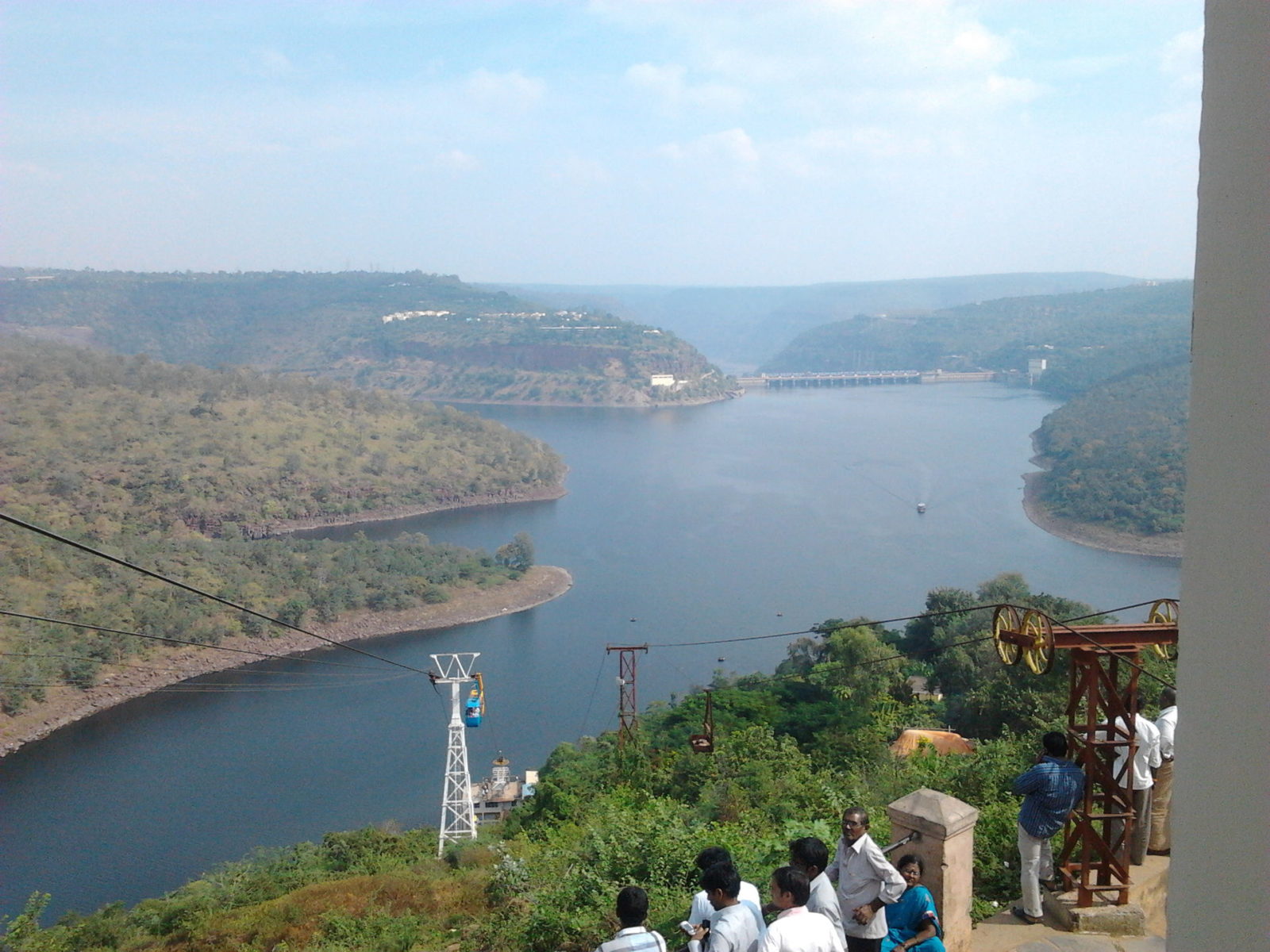
Over 12 months, the CRCWSC will design the stormwater and water management for the Government precinct of the new city, which aspires to showcase technology and a standard of living on a par with Singapore. We will also establish demonstration sites in the neighbouring city of Vijayawada
(40 minutes from Amaravati), to move that city towards its own sustainable urban water management.
While in India, Mr Ewert was part of a delegation led by Mr Sean Kelly, Australian Consul-General for South India, and including representatives from a range of Australian business and institutions, such as the Queensland and Western Australian governments, Curtin University, and Macquarie Bank. The delegation had the opportunity to meet with the Hon. Chief Minister for Andhra Pradesh, Mr Chandrababu Naidu, and other Ministers.
After the Australian delegation departed for Hyderabad, Mr Ewert remained in Vijayawada to commence work on the MoU by participating in an Amaravati Deep Dive Workshop. This two-day session with invited international guests tested the designs and principles underlining the new city of Amaravati. As part of the workshop, Mr Ewert sat on the water expert panel, and he was invited to address the Hon. Chief Minister Chandrababu Naidu with the panel’s recommendations.
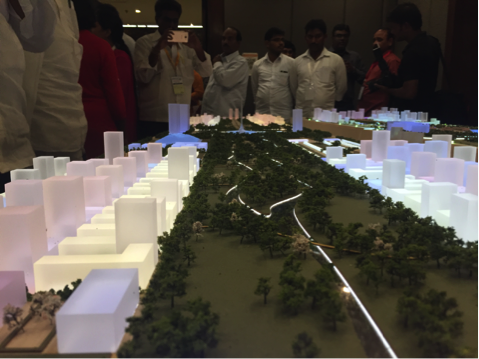
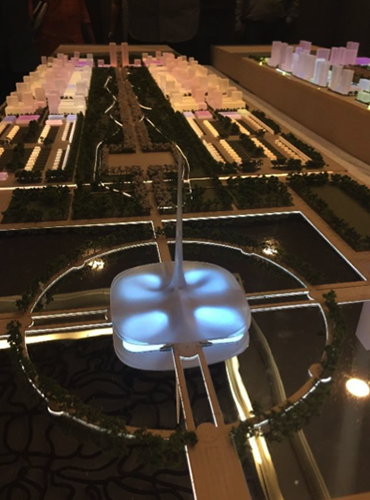
Mr Ewert said Amaravati’s development will showcase the CRCWSC’s expertise on the world stage and provide a pathway for Australian researchers and consulting companies to apply their skills in the growing India market.
‘We’re proud to work alongside global leaders in architecture and liveability to contribute Australia’s world leading water sensitivity expertise to this new Indian city.
‘This is an opportunity to test our tools, including the Water Sensitive City Index, research synthesis, urban heat guidelines, biofilter guidelines, urban design approaches, and waterway management approaches, and to help our CRCWSC partners become involved in activities such as stormwater design and applying the index.
‘The scale and speed of this opportunity cannot be underestimated. We talk about transforming cities, and here is an opportunity to build one from the ground up. The Andhra Pradesh Government is searching for global best practice and is already constructing the city, so it will be a reality soon,’ Mr Ewert said.
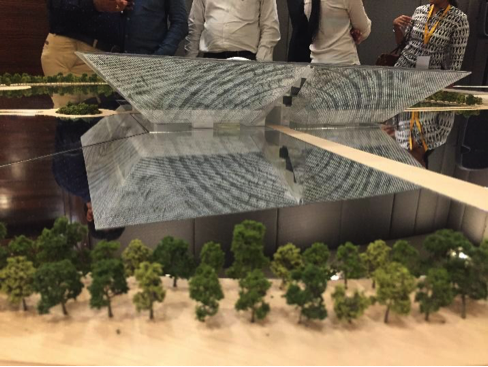
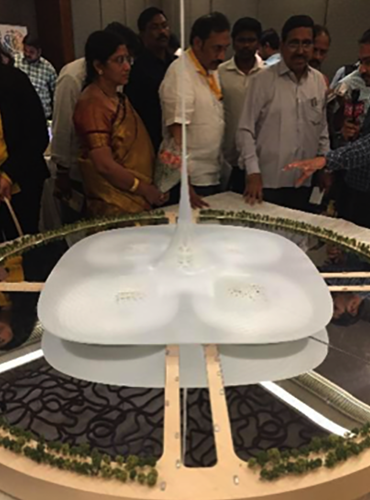
The Australian and Andhra Pradesh governments are jointly funding the CRCWSC’s $1 million contribution to the project.
Mr Ewert said he hopes the Australian Government’s $500,000 investment (through the Australian Water Partnership and the Department of Foreign Affairs and Trade), in addition to helping the Indian city to implement best practice water management, will stimulate future opportunities for Australian businesses and build capability among local partners. Certainly, there is plenty of scope for shared learning, more demonstration sites in other India cities, and reputation and relationship building for the CRCWSC, its partners, and other Australian organisations interested in the Indian market.
‘Our work in Amaravati will allow us to test how our research can be applied at the city scale, to design an entire city that is water sensitive. We also plan to bring back to Australia the lessons we learn in applying our tools and working in an international context, as well as strong business networks for future opportunities,’ Mr Ewert said.